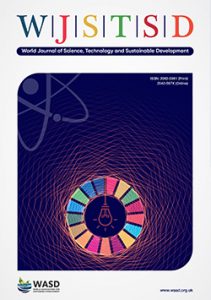Performance Evaluation of AI and Traditional Techniques for Crack Detection on Concrete Structures, Omer Abdalla, Ángel Encalada-Dávila, Mitterand Ekole
 Omer Mohamed Omer Abdalla
Omer Mohamed Omer Abdalla
EMJMD in Mechatronics (EU4M) University of Oviedo
Oviedo
Spain
ORCID:
Ángel Encalada-Dávila
EMJMD in Mechatronics (EU4M) University of Oviedo
Oviedo
Spain
ORCID:
Mitterand Sani Ekole
EMJMD in Mechatronics (EU4M) University of Oviedo
Oviedo
Spain
ORCID:
Paper Type: Research
Received: 19 February 2025 / Revised: 15 July 2025 / Accepted: 15 August 2025 / Published: xxx
DOI: 10.47556/J.WJSTSD.20.3.2025.5
Purpose: This study develops and compares AI-based and traditional crack detection models for concrete structures to enhance timely maintenance and prevent costly repairs.
Design/Methodology/Approach: A Convolutional Neural Network (ResNet50) with dynamic quantisation (DQ) is used for reduced memory, faster inference and lower energy consumption. A traditional model based on histogram intersection is also employed. Both models are trained and tested on publicly available datasets of concrete structures and compared in accuracy, precision, recall and training time.
Findings: The DQ-ResNet50 model shows training accuracy from 0.780 to 0.917 and validation accuracy from 0.707 to 0.906, while the traditional model’s accuracy drops to 0.630 in validation. The DQ-ResNet50 offers better deployment efficiency.
Value: The DQ-ResNet50 model balances performance and deployment benefits, making it more suitable for real-world applications.
Keywords: Crack Detection; Concrete Structures; Resnet50; Dynamic Quantisation; Traditional Techniques; Histogram Intersection.
Citation: Abdalla, O. M. O., Encalada-Dávila, Á and Ekole, M. S. (2025): Performance Evaluation of AI and Traditional Techniques for Crack Detection on Concrete Structures. World Journal of Science, Technology and Sustainable Development (WJSTSD), Vol. 20, No. 3, pp. xxx-xxx. WASD: London, United Kingdom.

